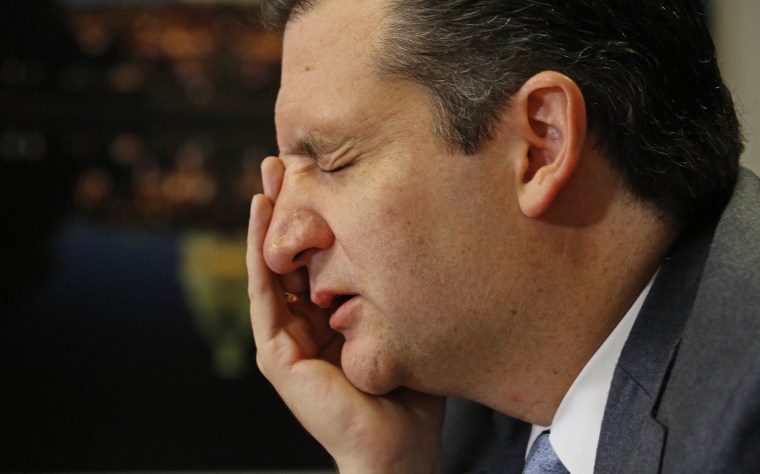Over the past quarter-century, there's hardly an American or Israeli leader the Kristol-Netanyahu crowd hasn't compared to Chamberlain. In 1985, Newt Gingrich called Reagan's first meeting with Mikhail Gorbachev "the most dangerous summit for the West since Adolf Hitler met with Neville Chamberlain in 1938 in Munich." When Reagan signed the Intermediate-Range Nuclear Forces Treaty, hawks took out newspaper ads declaring that "Appeasement is as unwise in 1988 as in 1938." Then, when Israel moved to thaw its own cold war with the Palestine Liberation Organization, Yitzhak Rabin assumed the Chamberlain role.... Then it was Bill Clinton. "The word that best describes Clinton administration [foreign] policy is appeasement," explained Robert Kagan and Kristol in 1999. Then, of course, it was the opponents of war with Iraq. "The establishment fights most bitterly and dishonestly when it feels cornered and thinks it's about to lose. Churchill was attacked more viciously in 1938 and 1939 than earlier in the decade," wrote Kristol in a 2002 editorial, "The Axis of Appeasement."
It's always 1938
Every attempt at diplomacy is not Munch. Every enemy is not Hitler. Every international agreement is not appeasement.

Sen. Ted Cruz (R-Texas) turned to a familiar comparison to condemn international nuclear talks yesterday. "I believe we are hearing echoes of history," the senator said. "I believe we are at a moment like Munich in 1938."
Of course he does.
Right-wing critics of the talks have been talking like this for months, though conservatives seem to be pushing the thesis with increased vigor now that an agreement appears more likely. Last week, after Prime Minister Benjamin Netanyahu's controversial speech to Congress, Mike Huckabee even celebrated the Israeli leader as "a Churchill in a world of Chamberlains."
I'm reminded of a Peter Beinart piece from a while back.
Simon Maloy had more along these lines today, taking a closer look at the right's "ridiculous Neville Chamberlain obsession" and "all the times conservatives accused Barack Obama of appeasing the world's many Hitlers." It's not a short list.
With this in mind, the latest nonsense from Cruz and Huckabee isn't just wrong and offensive; it's lazy.
As we discussed a while back, during the 2008 presidential race, far-right radio host Kevin James accused Obama and other Democrats of Chamberlain-like "appeasement" policies in the Middle East. When msnbc's Chris Matthews asked James what, specifically, happened in Munich in 1938, the conservative host simply had no idea -- James thought it'd be provocative to throw around buzzwords popular with the right, but he never bothered to gain even a cursory understanding of his own rhetoric.
It seems the political world is witnessing a repeat of the same circumstances, only this time it's on a much larger scale. Instead of one confused radio host being exposed as ignorant on national television, we see many leading Republicans -- including likely presidential candidates -- following the same example, pushing a comparison they don't understand.
Let's make this plain: every attempt at diplomacy with a foreign foe is not Munch. Every enemy is not Hitler. Every international agreement is not appeasement. Every president or prime minister conservatives don't like is not Chamberlain.
There's all kinds of room for spirited debate about how best to shape U.S. policy towards Iran, but if Republicans want their concerns to be taken seriously, they'll have to do better than this.